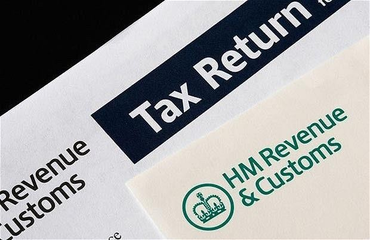Deadline day penalties: a subjective approach
Article Author: Harry Taylor Posted on: February 19, 2015 (Full Author Bio in the box on the right side) 3266 views
3266 views

January 31st is a date that every self- employed individual has in their diary. As discussed on Taxes UK, the deadline for returning self- assessments to HMRC is often missed by a large number of people. This year it is estimated that 890,000 individuals did not return their completed forms on time, automatically incurring a £100 penalty.
HMRC’s penalty for late self-assessment is seen by many as an unjust way for the government to generate easy revenue. The automatic £100 penalty places every late return into the same category; meaning those who make an honest mistake or return the form a day late are treated the same way as those who are deliberately non-compliant. This system has previously been criticised for its lack of subjectivity.
Filling out your self- assessment can be time consuming, especially if you are engrossed in your full- time occupation. Preparation is always key, and while £100 may not seem a great deal to some concerned, the combined sum of this year’s penalties equates to approximately £89m. Much of this figure is raised by those who have simply made an uncharacteristic mistake in filing their forms yet are categorised among those who intentionally disregard the rules for their own benefit and face what they may deem to be an inconsequential slap on the wrist.
Not surprisingly, this has now been addressed as HM Revenue & Customs has admitted that its penalties regime may be too rigid, and is drawing up proposals to end fines for taxpayers who narrowly miss the deadline.
We have been monitoring the progress of this, which has helped us give a useful insight for our clients; the initial proposals are now subject to public consultation. The proposals detail a new regime that would re-structure the way in which fines are calculated. In summary, the principal behind the proposed system is similar to that of motoring offences whereby you receive caution under the “points” principal. Therefore, more substantial penalties apply for more serious failures or for persistent non-compliance – potentially waiving punishment for first time offenders.
Latest Posts
-

Staying HMRC Compliant: VAT Returns Have Chan...
by Amanda Swales on January 29, 2020 Accounting & Tax -

Self Assessment Tax Return 101 - Filling In T...
by Amanda Swales on January 15, 2020 Accounting & Tax -

-



 Should an IT contractor become VAT registered
Should an IT contractor become VAT registered  Choosing the right VAT route
Choosing the right VAT route  HMRC Taskforces Targeting VAT Fraud
HMRC Taskforces Targeting VAT Fraud  A Guide To Tax Changes Impacting Landlords
A Guide To Tax Changes Impacting Landlords  Cloud Accountancy for Contractors: Do you find it mystifying?
Cloud Accountancy for Contractors: Do you find it mystifying?  The top 6 most common mistakes made on Self Assessment Tax Returns
The top 6 most common mistakes made on Self Assessment Tax Returns  IT Contractors - Profit extraction by dividend payment
IT Contractors - Profit extraction by dividend payment  Top 3 Reasons Why Freelancers and Contractors should hire an Accountant
Top 3 Reasons Why Freelancers and Contractors should hire an Accountant  Key tax dates coming up in July
Key tax dates coming up in July  Who Needs A UTR Number Anyway?
Who Needs A UTR Number Anyway?  PAYE Week 53 payments HMRC
PAYE Week 53 payments HMRC  Top Tax Changes That Contractors Need To Know
Top Tax Changes That Contractors Need To Know  How long to keep your PAYE records
How long to keep your PAYE records  Scotland Vs England And Wales: What Are The Differences In Tax?
Scotland Vs England And Wales: What Are The Differences In Tax?  Corporation Tax: Late Payment penalties and interest charges explained
Corporation Tax: Late Payment penalties and interest charges explained  Are You Declaring All Of Your Earnings To HMRC?
Are You Declaring All Of Your Earnings To HMRC?  Self Assessment Tax Return 101 - Filling In The Form Fast
Self Assessment Tax Return 101 - Filling In The Form Fast  The Tax Investigation Process
The Tax Investigation Process  Deadline day penalties: a subjective approach
Deadline day penalties: a subjective approach  Top Tax Tips for UK Contractors and Freelancers
Top Tax Tips for UK Contractors and Freelancers  Beginners guide to business tax deduction
Beginners guide to business tax deduction  5 reasons to update your self-assessment throughout the year
5 reasons to update your self-assessment throughout the year  Staying HMRC Compliant: VAT Returns Have Changed
Staying HMRC Compliant: VAT Returns Have Changed  What is a second payment on account and how is it calculated?
What is a second payment on account and how is it calculated?  Self Assessment Payments on Account
Self Assessment Payments on Account  3 Tips For Handling The Paper Tax Return Submission
3 Tips For Handling The Paper Tax Return Submission  How To Make The 2019-20 Tax Year The Time Of Tax Savings As A Sole Trader
How To Make The 2019-20 Tax Year The Time Of Tax Savings As A Sole Trader  Are you aware about the new HMRC Your 2016 Tax Report Phishing Scam?
Are you aware about the new HMRC Your 2016 Tax Report Phishing Scam?  Do I Need To Register As A Self-Employed Sole Trader?
Do I Need To Register As A Self-Employed Sole Trader?  Review bid gets crucial boost from influential and campaigning politician
Review bid gets crucial boost from influential and campaigning politician 

